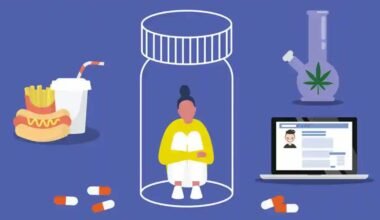Board games and gaming offer valuable support for individuals recovering from substance use disorders. These activities provide engaging distractions, promote social connections, and stimulate cognitive functions. They create opportunities for positive interactions without the presence of addictive substances.
Playing games can significantly improve mental health by reducing stress, anxiety, and depression while boosting mood and self-esteem. Board games encourage problem-solving, strategic thinking, and teamwork, fostering a sense of accomplishment and social belonging. These benefits are particularly relevant for those in recovery, who often face emotional challenges and isolation.
Gaming experiences also help develop coping mechanisms and emotional regulation skills. As players navigate game scenarios, they practice managing frustration, celebrating victories, and persevering through setbacks. These skills translate to real-life situations, empowering individuals to better handle the ups and downs of recovery and maintain their mental well-being.
Therapeutic Aspects of Board Games in Addiction Recovery
Board games offer valuable therapeutic benefits for individuals in addiction recovery. They provide cognitive stimulation, foster social connections, and help establish structure in daily routines.
Enhancing Cognitive Functions
Board games engage the brain in complex problem-solving and strategic thinking. This mental stimulation can help repair cognitive functions that may have been impaired by substance use. Games like chess or Scrabble challenge memory, attention, and decision-making skills.
These cognitive exercises can boost self-esteem and confidence as players see improvements in their abilities over time. Strategy games also teach patience and impulse control, crucial skills for maintaining sobriety.
Some games require players to plan several moves ahead, enhancing long-term thinking patterns. This skill can translate to better life planning and goal-setting in recovery.
Building Social Connections
Board games create opportunities for positive social interactions in a substance-free environment. They encourage communication, teamwork, and healthy competition among players.
Group games can help individuals rebuild trust and practice social skills that may have deteriorated during addiction. Cooperative games foster a sense of shared accomplishment and mutual support.
Regular game nights can become a cornerstone of a sober social life, providing a fun alternative to substance-centered activities. These gatherings offer a safe space to form new friendships and strengthen existing relationships.
Structure and Routine
Incorporating board game sessions into recovery schedules adds structure to daily life. Regular game nights create a sense of normalcy and routine, which is essential for individuals transitioning from treatment to everyday life.
Games with set rules and procedures can help reinforce the importance of following guidelines in recovery. This structured play mimics the structured approach needed in addiction treatment programs.
Board games also provide a healthy way to fill free time, reducing boredom and idle moments that could lead to cravings or relapse. They offer a productive and enjoyable activity to look forward to, helping maintain motivation in recovery.
Psychological Impact of Gaming on Mental Health
Gaming can have significant effects on mental well-being. It influences stress levels, emotional states, and carries potential risks of addiction.
Stress Reduction Through Play
Board games and video games offer effective stress relief. The immersive nature of games distracts players from daily worries and anxieties. This mental break allows the brain to reset and recharge.
Games often require focus and strategy, redirecting attention away from stressors. This shift in focus can lower cortisol levels, the body’s primary stress hormone.
Multiplayer games foster social connections, which are crucial for stress management. Sharing a fun activity with others releases endorphins, promoting feelings of happiness and relaxation.
Games and Emotional Well-Being
Gaming can positively impact emotions and mood. Achieving goals or overcoming challenges in games boosts self-esteem and confidence. This sense of accomplishment can carry over into real-life situations.
Cooperative games encourage teamwork and communication skills. These social interactions can reduce feelings of loneliness and isolation, common contributors to poor mental health.
Some games are designed to promote mindfulness and emotional awareness. These titles help players recognize and manage their emotions more effectively.
Risk of Gaming Addiction
While gaming offers many benefits, it also carries risks of addiction. Excessive gaming can interfere with daily responsibilities, relationships, and sleep patterns.
Signs of gaming addiction include:
- Preoccupation with games
- Inability to control gaming time
- Neglecting other activities
- Continued gaming despite negative consequences
Individuals with pre-existing mental health conditions may be more susceptible to gaming addiction. It’s important to maintain a balanced approach to gaming and seek help if it becomes problematic.
Evaluating the Role of Gaming in Rehabilitation Programs
Gaming elements show promise in enhancing substance use recovery programs. Research indicates potential benefits for patient engagement and skill development.
Integrating Games with Traditional Therapy
Rehabilitation centers like https://serenityranchrecovery.com/ increasingly incorporate board games and video games into treatment plans. These activities complement cognitive behavioral therapy and group counseling sessions. Games provide a structured environment for patients to practice decision-making, impulse control, and social skills.
Some facilities use specially designed therapeutic games targeting addiction-related issues. These games help patients explore triggers, coping strategies, and relapse prevention techniques in a low-pressure setting.
Digital platforms allow for progress tracking and personalized goal-setting. Therapists can review game data to tailor interventions and identify areas needing additional support.
Case Studies and Clinical Evidence
A 2023 study of 150 patients in outpatient rehab found those participating in weekly game sessions showed 20% higher program completion rates. Participants reported increased motivation and stronger peer connections.
Another trial examined the use of cooperative board games in group therapy. Results indicated improved communication skills and conflict resolution abilities among patients.
Brain imaging research suggests certain strategy games may help rebuild neural pathways affected by substance use. This could potentially aid in restoring cognitive functions impaired by addiction.
While promising, more large-scale studies are needed to fully evaluate gaming’s long-term impact on recovery outcomes.







